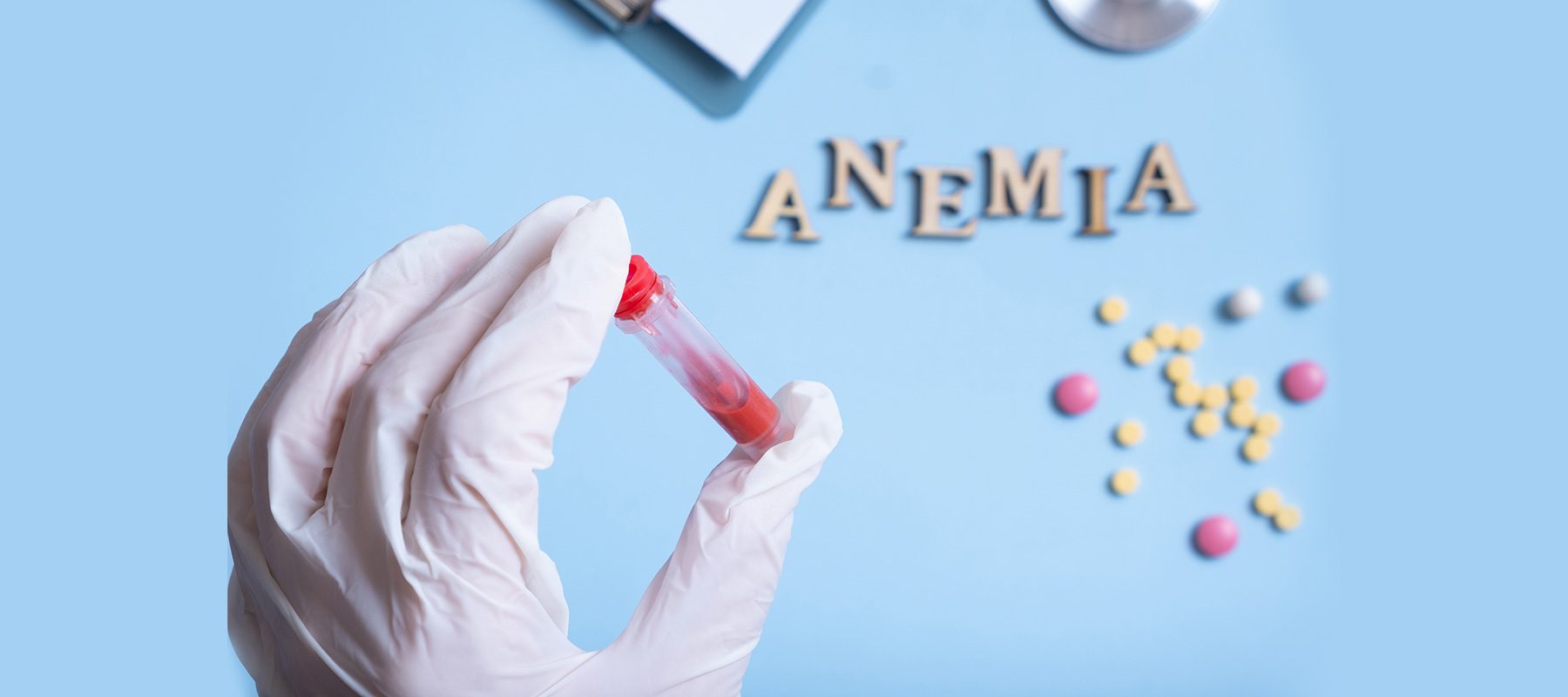Anemia is a severe condition where a patient’s body suffers from insufficient red blood cells. Red blood cells are the source of an essential protein named Hemoglobin, which is vital in supplying oxygen throughout your body. According to a survey report, more than 300 million people every year get diagnosed with Anemia, which affects their overall wellbeing. Although this condition is severe and life-threatening, early diagnosis and proper treatment can help to achieve a speedy recovery. However, to diagnose an illness, we must identify its symptoms. Individuals suffering from Anemia experience specific symptoms. This article will discuss symptoms of anemia, as well as causes and cures. We hope you find this information helpful.

What Are the Anemia Symptoms?
Although Anemia produces some common and noticeable symptoms, sometimes the symptoms depend on the severity or stages. Therefore, symptoms vary from person to person. Here, we list some of the most common symptoms of anemia.
Excessive Tiredness
Excessive weakness is the most profound symptom of Anemia. Individuals suffering from Anemia experience intense fatigue that affects their regular activities. They don’t feel like leaving their bed. And this fatigue becomes persistent over time. Despite not being active or performing strenuous activities, people feel exhausted. With time, they even lose their ability to walk, sit, and perform lighter activities.

Breathing difficulty
As mentioned, Red blood cells offer an essential protein named Hemoglobin. This protein plays a significant role in supplying Oxygen to our body. Individuals diagnosed with Anemia suffer from a lack of Hemoglobin. Therefore, they experience a shortage of Oxygen, which causes excessive breathing difficulties. In this stage, the patient often requires immediate hospitalization.
Whitish skin
Another observable anemia symptom is noticeable whitish skin. This whitish skin is primarily caused by thin blood flow. When the blood flow starts reducing, one’s skin looks overly pale. This noticeable symptom indicates a person is at the severe stage of Anemia.
Dizziness and vomiting
Anemia can trigger excessive dizziness and a constant feeling of vomiting. This dizziness often affects one’s ability to perform regular tasks. It generally occurs due to the lack of oxygen supply in the brain. In such conditions, medical interference is needed as soon as possible.
Faster Heart Beat
A sudden change in heartbeat often indicates a severe condition like Anemia. When the heart doesn’t receive enough Oxygen, it has to beat rapidly to gain some oxygen. This condition often causes excessive restlessness and constant irritation. If it remains untreated, it can even cause a massive heart attack.

What Are the Causes Behind Anemia?
Research shows that genetics plays a big role in triggering major health issues like Anemia. Beyond genetics, there are some other significant causes of Anemia. Here, we will enlighten you about those critical triggering factors of Anemia.
Insufficiency of Iron
Iron plays a pivotal role in producing a healthy amount of Hemoglobin. Therefore, iron deficiency often turns out to be the most evident reason behind Anemia. Individuals diagnosed with Anemia usually suffer from malnutrition, which gradually leads to iron deficiency. A healthy diet containing enough iron might improve the condition in such a condition. However, iron tablets are sometimes the only way to restore the iron level.
Chronic illnesses
Chronic illnesses like improper bowel movements, piles, and cancer can lead to sudden blood loss, which often contributes to Anemia. At the same time, severe underlying diseases often impact your body’s natural power to produce RBC (Red Blood Cells). If these conditions remain undiagnosed and untreated, they can eventually lead to severe Anemia.
Heredity
As mentioned, little research evidence has suggested that heredity plays a significant role in triggering severe health issues, including Anemia. For Example, a person with a family history of Anemia is more likely to get diagnosed with Anemia at any stage of their lives.

What Are Some Effective Treatments for Anemia?
Although Anemia is a severe health condition, it’s curable if diagnosed promptly. Medical science has reached the highest level of success, and as a result, today’s doctors can treat and save an anemic patient. Here are some effective treatments for Anemia.
Blood Transfusion
At the severe stage of Anemia, doctors don’t take any chances and recommend an immediate blood transfusion. This is the fastest way to restore the patient’s body’s RBC level and oxygen supply. This advanced method can offer a speedy recovery and reduce the risk of life threats.
Iron supplements
If Anemia is triggered by iron deficiency, your doctor might prescribe iron supplements. These supplements work well in restoring the iron level and can also promote RBC growth.
Right diet
Proper diet plays an unforgettable role in reducing this ironic sick issue and improving RBC production. Therefore, eat foods rich in nutrients, especially iron and folic acid. Add fresh vegetables, lean proteins, dairy products, beans, seeds, and fruits to your diet. At the same time, eat at least 2 or 3 eggs a day. Eggs are an easily available and robust source of protein and gradually increase the hemoglobin level.
Take medicines on time
Anemia can be treated with few effective medicines. However, you may need to take these medicines for a longer time. Your doctors will keep a constant eye on your hemoglobin level. You should conduct a regular hemoglobin test to ensure the medication works and improve your condition. Such well-monitored treatment can offer a desirable result.
Treating the underlying diseases
If a severe underlying disease causes Anemia, your doctor might need to treat that underlying condition first. An unresolved medical condition can again cause Anemia and lead to a severe phase. Therefore, diagnosing and treating those underlying diseases should be the beginning step of treatment.

Conclusion
Anemia is among the most common health issues affecting at least one person in 10. Although recovery is challenging and time-consuming, with the right treatments, one can heal fast. Incorporating healthy meals and taking your medicines on time are the best things you can do to support this healing process. Also, trust your doctors and let them monitor your progress regularly.
For the latest health and wellness insights, keep up with World of Heal.
Don’t miss out on our exciting guest posting opportunities – contact us at affiliates[@]prasarnet[.]com for more details!

Pamela is a creative content writer and editor with experience working with various multinational agencies. She is known for her dynamic approach and enthusiasm in publishing engaging and insightful articles.












